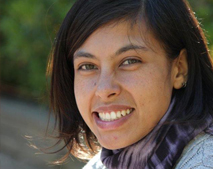Speech segmentation and new word learning in aphasia
Learning new words and meanings is an essential capacity of humans. New phonological word forms and lexical-semantic representations continuously increase the human mental lexicon throughout the lifespan. People with aphasia experience difficulty in retrieving such representations after brain damage. Because one important aim in aphasia therapy is to strengthen the links between word-form and meaning, the investigation of new word learning ability in people with aphasia can be crucial for furthering our understanding of the mechanisms underlying improvement in aphasia recovery and treatment.
Past research has evidenced that the ability to learn and retain newly acquired words can be preserved in some people with aphasia, albeit with a large inter-individual variability. Moreover, preliminary evidence favors an association between word learning ability and response to anomia treatment in aphasia. These findings come from a series of studies that involve learning of word-object pairings in unambiguous referential conditions. However, two important aspects of early word learning, speech segmentation and word-referent acquisition under referential ambiguity, have not been addressed in aphasia.
The main goal of the present dissertation was to examine speech segmentation and vocabulary acquisition under referential ambiguity in people with chronic post-stroke aphasia. This dissertation includes three original studies that evaluated whether new word learning ability can be preserved in people with aphasia. The second aim in all three studies was to examine whether word learning capacity in people with aphasia was related to their cognitive-linguistic abilities and aphasia severity. In addition, the first two studies also evaluated the relationship between learning ability and gross lesion location along the anterior-posterior division of the left hemisphere.
Study 1 focused on the ability of people with aphasia to segment words from spoken language through statistical learning. The results of this study indicate that speech segmentation ability can remain preserved in some people with aphasia. Moreover, speech segmentation was associated with verbal short-term memory capacity and with the integrity of the left inferior frontal cortex in the participants with aphasia.
Study 2 aimed to investigate whether people with aphasia could learn new word-referent associations under referential ambiguity supported by online feedback. This study shows that some people with aphasia can learn new word-referent mappings aided by visual feedback, and that these associations can be retained at 1 week post training without feedback. Verbal short-term memory and aphasia severity predicted word learning ability in the participants with aphasia. Moreover, left inferior frontal lesions were associated with impaired learning ability.
Study 3 examined cross-situational word learning in people with aphasia without feedback. This study demonstrates that some people with aphasia show preserved ability to learn new word-referent associations through a cross-situational learning strategy. Learning ability was associated with aphasia severity in the participants with aphasia, and with verbal short-term memory in their older healthy controls. This study also found an association between speech segmentation and cross-situational word learning in both people with aphasia and in healthy individuals.
In line with past research of word learning ability in aphasia, these three studies provide evidence that two important aspects of initial language learning, speech segmentation and word-referent mapping under referential uncertainty, can remain functional in some people with chronic aphasia. Online feedback and cross-situational learning can aid some people with aphasia to learn new word-referent associations in referentially ambiguous contexts. Moreover, these studies indicate that aphasia severity and verbal short-term memory are the key predictors of these word learning abilities in aphasia. The relationship between speech segmentation and cross-situational word learning in people with aphasia and healthy individuals indicates that these two abilities may at least partially rely on common statistical learning mechanisms. Importantly, the integrity of the left inferior frontal region seems crucial for the functionality of speech segmentation and word learning under referential ambiguity in aphasia.
The three studies included in this dissertation advance our knowledge on the functionality of word learning in aphasia by employing an approach that mimics the complexity of the language system and its acquisition in natural learning environments. The overall findings of this dissertation shed light upon the cognitive mechanisms, processes and neural substrates that support different aspects of new word learning in aphasia. The study of word learning potential in aphasia can inform language therapy and contribute to the prediction of recovery of lexical retrieval difficulties in aphasia.

